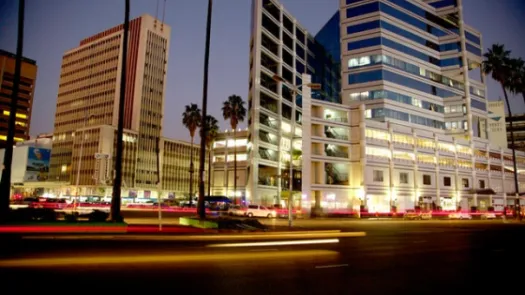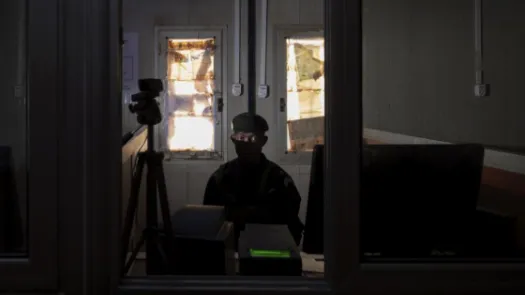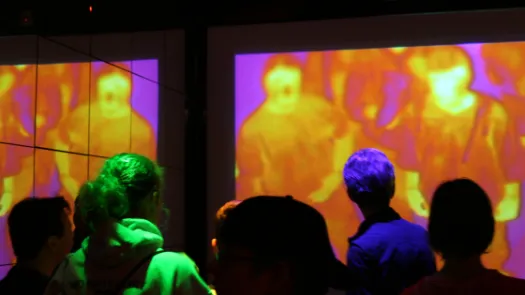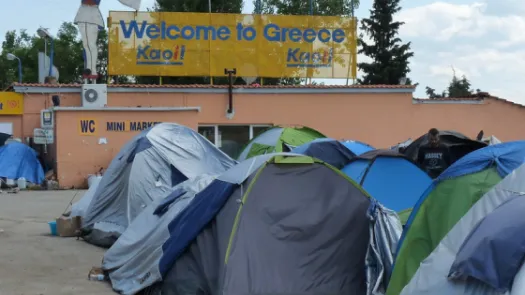The EU Funds Surveillance Around the World: Here's What Must be Done About it
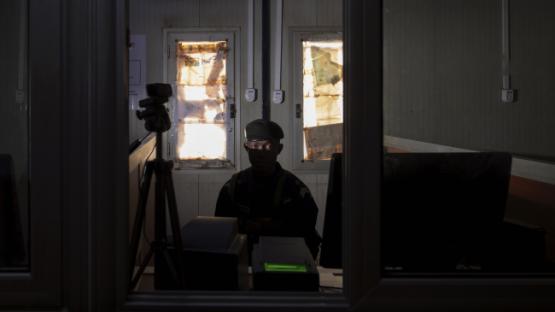
Photo: Francesco Bellina
Driven by the need to never again allow organised mass murder of the type inflicted during the Second World War, the European Union has brought its citizens unprecedented levels of peace underpinned by fundamental rights and freedoms.
It plays an instrumental role in protecting people’s privacy around the world; its data protection regulation sets the bar globally, while its courts have been at the forefront of challenges to unlawful government surveillance practices.
But its various bodies have different, often conflicting areas of interest and policies. Too often, it has passed regulations at odds with its own fundamental values, such as forcing telecommunications providers to retain customers’ data, and it spends millions of euros funding the development of advanced surveillance technology.
As leaders have come to power across Europe on anti-immigration platforms, the EU’s recent policies have been shaped by the drive to stop migration to Europe; a political strategy which has permeated throughout the EU’s current and future agenda, particularly its relations with non-member countries.
By prioritising migration control, the EU’s foreign aid budget and cooperation agreements are being used to encourage and enable other countries to carry out more surveillance and entrench the political control of local authorities. And is set to massively increase such support.
Subject to agreement by the European Parliament and EU member states, the Multiannual Financial Framework (MFF) sets the EU’s budget for seven-year periods. Last year, a draft was proposed by the European Commission which will manage expenditure of over a trillion euros between 2021-2027. The Commission hopes it will be signed off by the end of 2019.
EU leaders have already made it clear that the its most urgent priorities include reducing migration, supported by the fact that the largest proposed increases on expenditure from the previous budget is on migration and border control, which will see funding nearly triple to €34.9 billion.
Such increases pose a severe threat to people’s privacy around the world; not only do they divert resources away from development and other aid projects, they export surveillance capabilities around the world, often to countries which lack rule of law or are deeply authoritarian where authorities use them to stifle human and democratic rights.
The EU’s proposal is to incorporate many currently disparate funds related to development and foreign cooperation into one new one called theNeighbourhood, Development and International Cooperation Instrument (NDICI). Its future will be decided imminently: Privacy International has put together a summary of the proposals and recommendations for policy makers, available here.
Another key fund is the EU Trust Fund for Africa. Currently, it is being used to fund various surveillance projects related to surveillance across to stop irregular migration to Europe. Similarly, it’s future is also undecided: Privacy International has also put together a summary of the fund and recommendations for policy makers going forward.
The future of these funds will have a profound impact on people’s privacy and rights around the world for decades to come. Below, Privacy International maps some of the current instruments and funds which have been undertaken by the EU and which raise significant threats to privacy.
EU trust fund for stability and addressing root causes of irregular migration and displaced persons in Africa
EU Trust Fund for Africa, which as of July 2019 amounts to 4.6 billion, works across three regional areas, the Sahel and Lake Chad, North Africa and the Horn of Africa on 209 different programmes aimed at deterring irregular migration to Europe. More than 4 billion of the fund is drawn from the European Development Fund (EDF), the EU’s main sintrument for providing development aid, and other development and cooperation funds. Under the Fund:
- A €28 million programme aims to develop a universal nationwide biometric ID system in Senegal by funding a central biometric identity database, the enrolment of citizens, and the interior ministry in charge of the system.
- €30 million has been allocated to fund Cote d’Ivoire’s new universal biometric identity system with the explicit aim of doing so in order to identify Ivorians irregularly residing in Europe in order “to organize their return more easily”.
- €40 million was allocated in 2016 to countries in Eastern and the Horn of Africa under the Better Migration Management programme to strengthen the capacity of law enforcement officers by providing training, technical assistance and equipment. Specifically, the fund aims to assist in the establishment of specialised police units, increase capacity to conduct investigations, and enhance intelligence sharing between authorities.
- €55 million was allocated to Tunisia’s and Morocco’s Interior ministries for the ‘purchase and maintenance of priority equipment, capacity building and development of necessary standards and procedures at national level’. The programme includes the provision of and training in ‘state of the art technology’, as well the establishment of screening system to allow border agencies to collecting data at border crossing points, outposts and coastal stations to be further analysed at the central level, and conduct risk analyses for travellers. In Morocco, the programme will develop an IT infrastructure collecting, archiving and identifying digital biometrics, increase aerial surveillance capabilities by providing equipment, and provide vehicles, surveillance, and communication equipment for different field units.
- €15 million was allocated to law enforcement agencies in Algeria, Egypt, Libya and Tunisia to build identification and investigation capacities. Activities include establishing a group of ‘cyber specialists’ ‘criminal analysts’, and ‘forensic specialists’ capable of conducting online investigations and collecting evidence from digital devices, training them, and providing them with ‘light equipment’.
- €5 million was awarded to Interpol for the development of a police database across Burkina Faso, Benin, Côte D’ivoire, Ghana, Mali, Mauritania, Niger, and Chad to enable them to ‘collect, centralize, manage and share police data’, and to train officers in the use of the system.
- €5 million allocated to establish a Regional Operational Centre (ROCK) in Sudan aimed at reduce the number of incidents of human trafficking and people smuggling “through an enhanced regional capacity to better track and share information on irregular migration flows and associated criminal networks” in Eastern Africa and in the Horn of Africa. The project involves establishing a platform and mechanism for regularly sharing relevant information between the authorities in the region, improving capacity for collecting data and disseminating information, training officers, and establishing legislation for information sharing and joint investigations.
- A project worth €11.5 includes funding for an IMSI Catcher (an advanced mobile surveillance tool), surveillance drones, cameras, surveillance software and a telecommunications wiretapping centre up for Niger's border police.
European Neighbourhood Instrument (ENI)
The ENI provides over €15 billion from 2014-2020 to non-EU countries to its east and south aiming to foster human rights and the rule of law, reduce poverty, and support economic development, among other priorities. Under these funds:
- €10 million was allocated to a project aiming to countering radicalisation and Foreign Terrorist Fighters in Middle East, North Africa, Sahel and the Balkans, which included increasing the “capacity of criminal justice officers to use efficient special investigation techniques to counter terrorist activities on the Internet”.
- €3 million was provided to train develop investigative capabilities in the Maghreb. One such training, implemented by the Terrorism Prevention Branch of the United Nations Office on Drugs and Crime, included training police in Morocco on “wiretapping/telephone tapping and videotaping” and “special investigation techniques on the Internet/Electronic surveillance (anonymous browsing for investigation purposes, interception of data and mails, decryption of encoded data, etc.)”
- €3.3 million is being used to fund CyberSouth to provide training to law enforcement agencies in countries on the EU’s southern border. Activities have included training 20 law enforcement and magistrates from Morocco, Tunisia, Algeria, Libya and Jordan in “online investigations on the internet with enhanced knowledge in the relevant technologies”, and training “24 law enforcement representatives and magistrates from Jordan, Lebanon, Morocco, Tunisia, Algeria and Romania” on “online covert investigations on internet, darkweb and crypto currencies”.
- €5.3 million was provided to strengthen “surveillance and bilateral coordination capacity along the common border between Belarus and Ukraine” which has included the procurement of border control equipment and study visits to learn about the use of use of special investigative techniques.
- Experts from authorities in Algeria, Egypt, Israel, Jordan, Morocco, Palestine and Tunisia were presented with “various French services and parties involved in the fight against cybercrime” as part of the Euromed Police Project, running from from 2016-2020 with a budget of €5 million.
Instrument contributing to Stability and Peace (IcSP)
With a budget of €2.3 billion for 2014 – 2020, the IcSP funds projects aimed at conflict prevention, peace-building, crisis response and managing security threats. Projects include:
- €6.4 million provided to the European Union Agency for Law Enforcement Training (CEPOL) to train authorities in Algeria, Jordan, Lebanon, Morocco, Tunisia, and Turkey in counter-terrorism. In 16 months until April 2019, 341 law enforcement officials were trained from these countries on topics including Open Source Intelligence, digital forensics, “special investigative means”, and undercover operations.
- Developing the capacity of Tunisian security agencies to counter terrorism by developing “intelligence processing and analysis”, “providing training in digital intelligence gathering including through social media and digital mapping”, and “developing inter-service cooperation among Tunisian security agencies”.
- Developing the internal security service in Burkina Faso by improving “Intelligence cycle management”,
- Supporting “the planning and gathering, as well as the coordination, of intelligence efforts” in Somalia
- Establish a counter-terror information coordination centre with the Iraqi National Security Council aiming “to foster coordination and ensure that the seven Iraqi intelligence services work together effectively.”
- The Global Action on Cybercrime Extended (GLACY)+, which trains authorities in twelve countries in Africa, Asia-Pacific and Latin America and the Caribbean region. For example, in 2018, 18 participants from three Senegalese law enforcement agencies were trained in performing “Internet investigation with enhanced knowledge in the relevant technologies”, and given modules on TCP/IP, DNS, hashing, symmetric and asymmetric encryption and digital certificates.
- €12 million for experts from the Spanish Ministry of Interior , the Carabinieri in Italy and the National Crime Agency (NCA) in the United Kingdom to train officers in more than 30 countries through which the so-called “heroin routes” pass on countering drug trafficking and organised crime. Assistance provided includes training Moldova’s undercover agents in special investigative techniques.
The Instrument for Pre-accession Assistance (IPA)
The IPA is the means by which the EU funds countries which are potential future members and provides them with technical assistance, amounting to some €11.7 billion for the period 2014-2020. Under these funds:
- An electronic interception system is being financed in Albania on the condition the current system is decentralised so that such surveillance is made available to more agencies. Because the “interception of electronic communications in Albania is currently strictly regulated by law with a stringent system of authorisation by the General Prosecutor”, such funding is contingent on the Albanian law being amended in order to authorise such decentralisation. The system is to be purchased from “one of the European Union countries and member of NATO” for an approximate cost of €3 million.
- A system for intercepting communications is being established in Bosnia and Herzegovina controlled by its main security agency, State Investigation and Protection Agency (SIPA), and available for use by all relevant police and border agencies, among others.
- Training courses are being provided to law enforcement agencies across Bosnia, aimed at “dealing with electronic devices and devices for recognition which may contain evidence of crime; search of computers and other electronic equipment; analysis of digital evidence and its presentation; use of the Internet as a tool in investigation; interception of electronic messages”.
- Bosnia’s Migration Information System is being upgraded to allow the biometric identification of foreigners, aiming to “enable more effective irregular migration detection and identification of irregular migrants at the borders and within the country.”
- Officers from Serbia’s Criminal Police Department were funded to attend ISS World, a notorious surveillance trade show bringing together government representatives with surveillance companies, known as the “wiretappers ball”.
- Under the 2008 Accession Partnership with Turkey, the EU contributed €6,300,00 “To strengthen the current capacity of Turkey in the fight against organised crime”, which included providing training to a minimum of 300 staff on EU best practices particularly about “video and audio surveillance”, “target tracking systems”, “lawful interception”, “cyber crimes including hi-tech and internet crimes” and “computer and mobile phone forensic inspection”, as well as the Procurement of “necessary equipment for the modernisation of organised crime units”.
- Under the 2014-2020 IPAII strategy with Turkey, funding was provided for lawful interception (wiretapping), computer and mobile phone forensic inspection, special operational equipment (technical, electronic and optical devices, vehicles, etc.), training on the use of technical devices in operation, and "supporting better data collection and improved analytical capacity".
European External Action Service (EEAS)
The EEAS is the EU’s “diplomatic service”, responsible for implementing the its Common Foreign and Security Policy, which includes promoting environmental protections, providing assistance in crisis zone, and promoting democracy worldwide.
The EU is a key security player in the Sahel region, providing €147 million to establish the African led G5 Sahel Joint Force aiming to improve regional security and fight terrorist and criminal groups. It is also involved in a number of missions:
- EUCAP Sahel Niger was launched in 2012. It is a civilian mission of the EU and aims to assist Niger in the fight against terrorism and in the management of migration flows. Over 120 experts from European security forces, justice and civil society are permanently deployed to Niger. EUCAP supports the Nigerien Security Forces and provides them with training and equipment, including training in investigations, surveillance, and forensics. Since 2012, more than 13,000 members of the security forces and authorities have received trainings and assistance and equipment. The mission has increasingly engaged in a broader range of tasks, including information gathering and exchange in the field of migration. In this regard, since 2016 the EU mission has established a permanent presence in the Agadez desert region, a place where many migrants pass through to reach Libya. Between 2012 and 2017, the mission's costs amounted to 69.46 million. The mission has last been extended in September 2018 for two more years. The EU is funding it with €63.4 million for this period.
- EUCAP Sahel Mali began in January 2015. The mission’s stated purpose is to assist the Malian authorities in the reorganization of its security forces in order to improve the rule of law in the country. EUCAP would provide training and advice to the national police and the national guard with the goal of implementing the security reforms introduced by the local government. Just under 200 staff members are located at the mission’s headquarters in the capital, Bamako.Between 2015 and 2017 the mission’s costs amounted to €66.48 million. In 2017, the EU Council decided to extend the mission until January 2019, providing an extra 28.45 million euros. Its mandate was expanded to include activities of strengthening the internal security forces’ capacity to fight against terrorism and organised crime and supporting Mali in managing migration flows and border management. In February 2019, the mission was extended until January 2021 with a budget of €66.9 million.
- EEAS is active in Libya with the EU Border Assistance Mission (EUBAM) since May 2013. Its aim was initially to support the capacity of Libyan authorities to enhance the security of their land, sea and air borders and to develop a broader Integrated Border Management (IBM) strategy. EUBAM currently also supports the Libyan authorities in capacity building and strategic planning within the Ministry of Interior (MoI) on law enforcement and institutional reform and strategic planning assistance to the Ministry of Justice (MoJ) and broader capacity building for the relevant criminal justice actors. EUBAM cooperates closely with Frontex and Europol that have embedded experts in the mission and plays a coordinating role for the EU and other international groups’ activities in Libya. The mission is aiming to take on an increasingly ‘hands-on approach’, moving from a planning focus to a direct engagement in border management. In December 2018, the EU Council extended EUBAM until June 2020 and allocated a budget of 61.6 million euros, while, crucially, also revising its mandate. The mission is now required to “actively support the Libyan authorities in contributing to efforts to disrupt organised criminal networks involved in smuggling migrants, human trafficking and terrorism”.
Development Cooperation Instrument (DCI)
The DCI, with a budget of €19.6 billion for 2014-2020, is aimed primarily at reducing poverty, supporting geographic and thematic projects worldwide. Under the Fund:
- €6 million was allocated to support countries in Eastern and the Horn of Africa to “address mixed migration flows”, by establishing reception centres, and increasing capacity to tackle smuggling groups, implemented by Expertise France. In 2017, 28 law enforcement and judicial officials from seven east African countries attended a 5-day training course delivered by the Italian Carabinieri Corps, the French Gendarmerie Nationale and the French National Police, who “instructed on methods and techniques of investigation”. Beneficiary countries include Djibouti, Eritrea, Ethiopia, Egypt, Kenya, Somalia, Sudan, South Sudan
FRONTEX
The European Border and Coast Guard Agency, known as FRONTEX, is responsible for border control of the EU Schengen area. In 2016, its mandate and role was significantly increased and is now involved in joint operation in non-EU countries, and has concluded working arrangements with the authorities of 18 countries.
- Frontex cooperates with Eucap Sahel Niger and deployed its own liaison officer since 2017. In November 2018 Frontex opened its first ‘risk analysis cell’ in Niamey in cooperation with Nigerien authorities. The role of the cell is to collect and analyze data on cross-border crime in various African countries and support authorities in border management. Similar cells will be established in, Gambia, Senegal, Kenya, Nigeria, Guinea and Mali over the next twelve months.
- Similarly to Niger, in January 2019 Frontex and the Ghana Immigration Service opened a ‘risk analysis cell’ in Accra. Funded by the European Union through the ‘Strenghtening of Africa-Frontex Intelligence Community (AFIC) project’ the cell contributes to gather intelligence and share of information on border security. Frontex will help to collect, analyse and share information based on indicators such as passengers flow, refusals, travel facilitators and documents fraud. Between 2014 and 2017, the EU funded a joint project by IOM and the Ghana Immigration Service called Ghana Integrated Management Approach (GIMMA). The aim was to contribute to the Government of Ghana’s efforts to manage migration effectively through the establishment of an integrated migration management approach.
- The Africa-Frontex Intelligence Community (AFIC) was set up in 2010 to provide a framework for regular knowledge and intelligence sharing in the field of border security between Frontex and African countries.The initial geographical focus of AFIC was on West Africa, but since 2017 it has been extended to several other countries. AFIC was launched to provide a framework for regular information sharing about migrant smuggling and border security threats. It foresees close cooperation with a number of countries along the main smuggling routes. This is done through a series of training activities to develop national and regional strategies to fight cross-border crime
- €4 million was granted Frontex to strengthen AFIC, which includes consolidating and enhancing inter-agency and inter-regional information-sharing, improving the operational capabilities of the partner countries, through promoting information exchange that can lead to investigations to dismantle organised crime networks, and increasing the capacities of beneficiary countries to draft and share strategic and operational risk analyses/assessments on regular/irregular migration flows, border security, and cross-border criminality.
- Since 2015, Frontex has outsourced part of its aerial surveillance operations to commercial companies, and in 2019 extended such surveillance capabilities to non-EU countries. A call for tenders states that Third Countries which could be part of its area of interest include the countries from the Black Sea and the Mediterranean region, some West or North African countries, as well as any Third Country within Europe.
- In August 2018, Frontex put out the tender of framework contract for the provision of vehicles for migration management support (VMM), to be used for activities within Frontex Joint Operations/Pilot projects including the identification and registration of irregular migrants, interviewing of migrants, and documents checks. The tender states that the activities will be used in North and West parts of Africa such as Mauritania, Morocco, Algeria, Tunisia, Libya, Egypt. Frontex is to provide specialized devices such as fingerprint devices and document examination devices.
